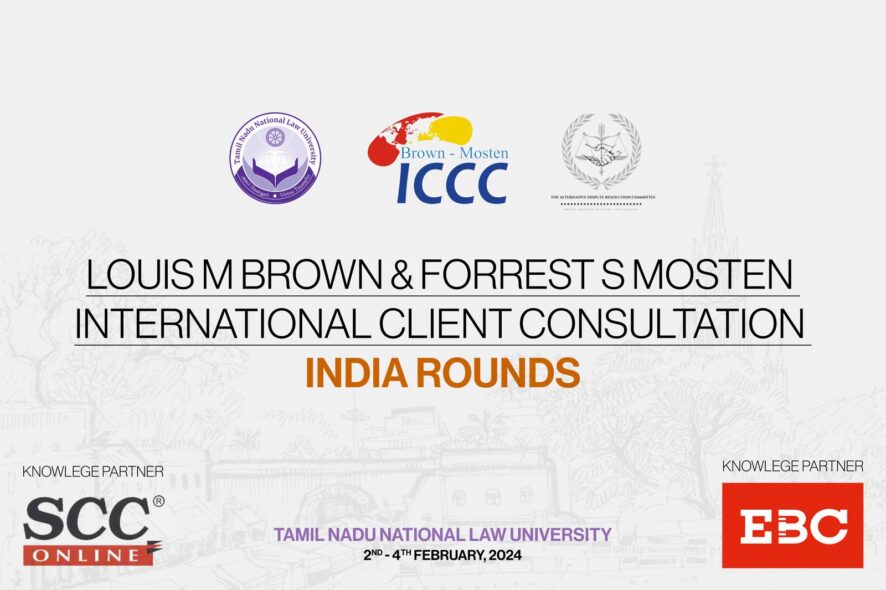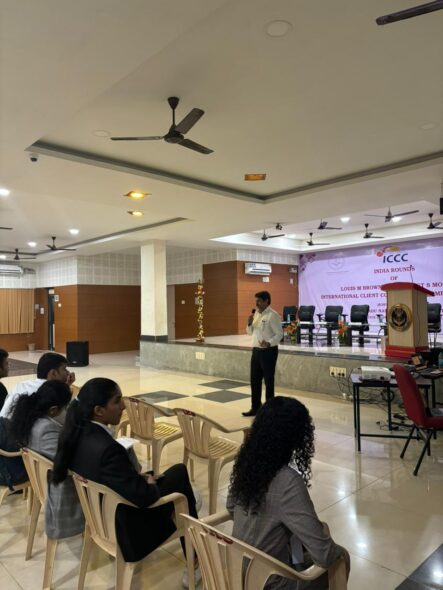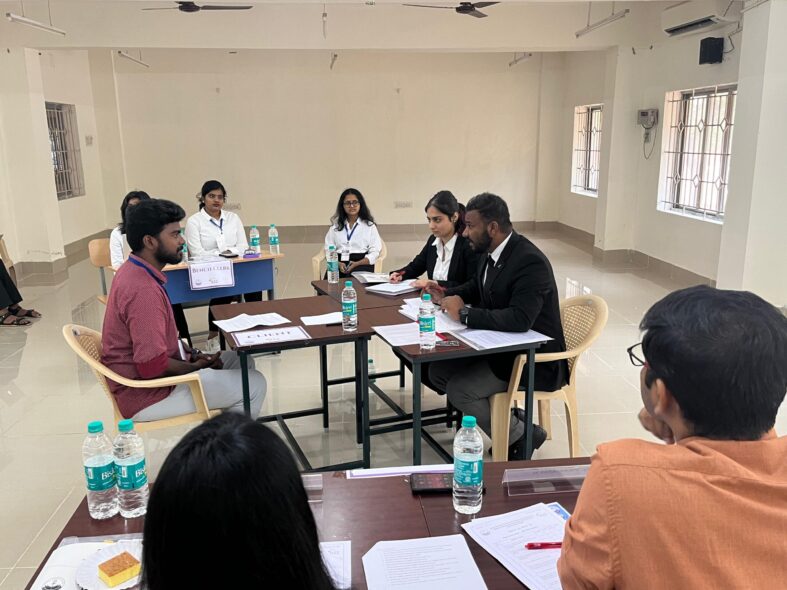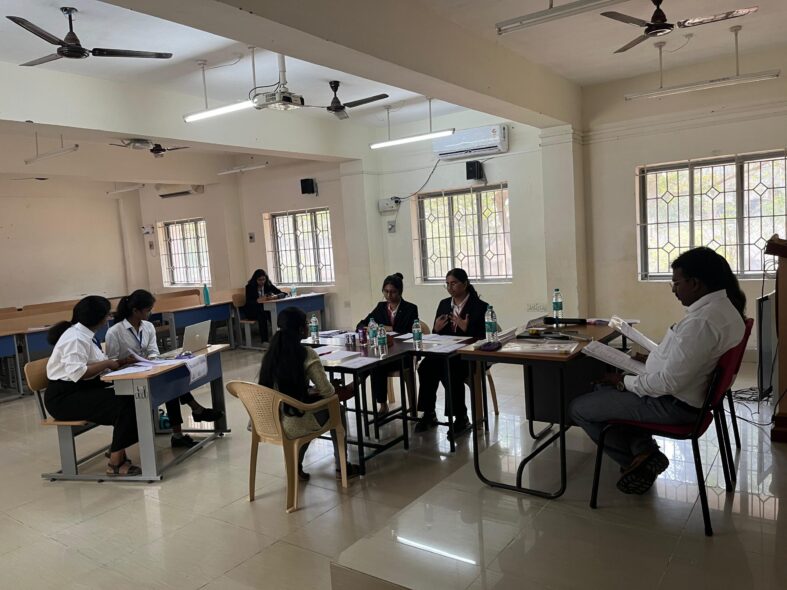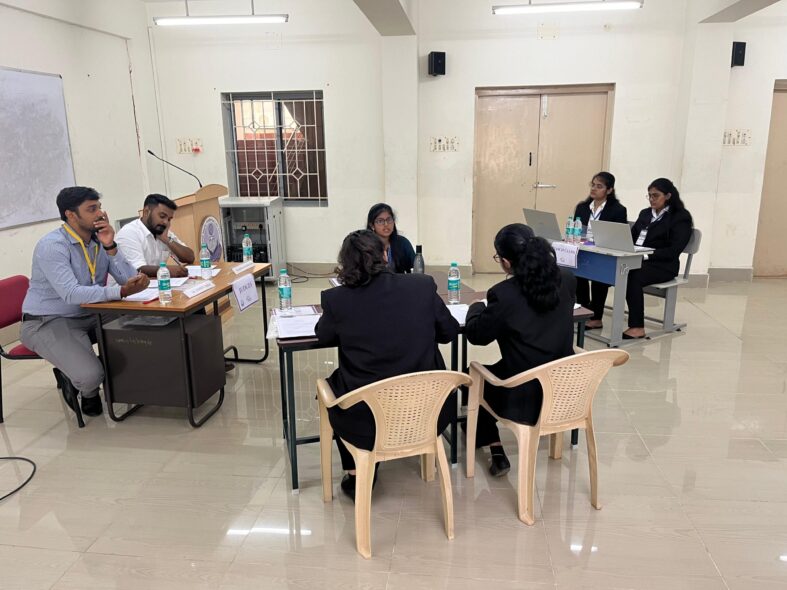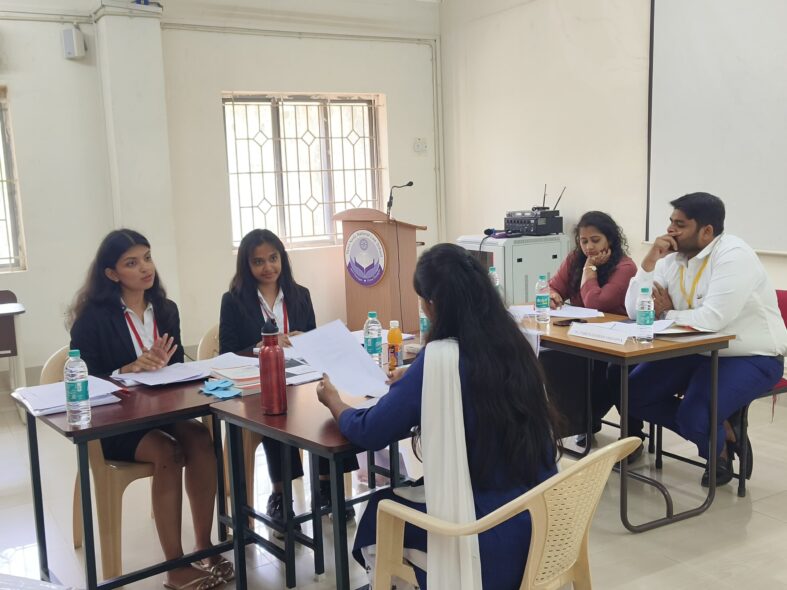Welcome to the Temple City of Tamil Nadu, Tiruchirappalli!
The Tamil Nadu National Law University (TNNLU), is hosting the India Rounds, 2024 of the Louis M. Brown and Forrest S. Mosten International Client Consultation Competition in collaboration with our knowledge partners, SCC Online and Eastern Book Company. The Competition is taking place from the 2nd to the 4th of February 2024. The winner of the National Rounds shall represent India in the International Rounds.
The Louis M. Brown and Forrest S. Mosten International Client Consultation Competition began in 1969 and gained ABA recognition in 1972. In 1993, it was officially named after Louis M. Brown. In 2010, it changed from “Client Counselling” to “Client Consultation.” Affiliated with the International Bar Association, it annually hosts winners from national rounds worldwide. The 2024 International Rounds will be held in Lublin, Poland, hosted by John Paul II Catholic University, in partnership with Ukraine, from April 10-13, focusing on International Humanitarian Law. Participants hone interviewing and counseling skills, engaging with clients from diverse backgrounds.
With 31 teams from leading law universities for the National Rounds, this competition promises an exciting showcase of client consultation prowess.
2nd February, 2024 (Day 1)-
3 PM | Registration | Multi-Purpose Hall
The registration for the event commenced, marking the beginning of an exciting gathering for all participants. As the participants entered, they were warmly welcomed by the Organizing Committee, who greeted them with smiles and words of encouragement, further enhancing the welcoming atmosphere of the event. With the registration getting over, it became evident that the event was poised to bring together a diverse and dynamic group of law students from all over India who were ready to contribute to the success of the competition.
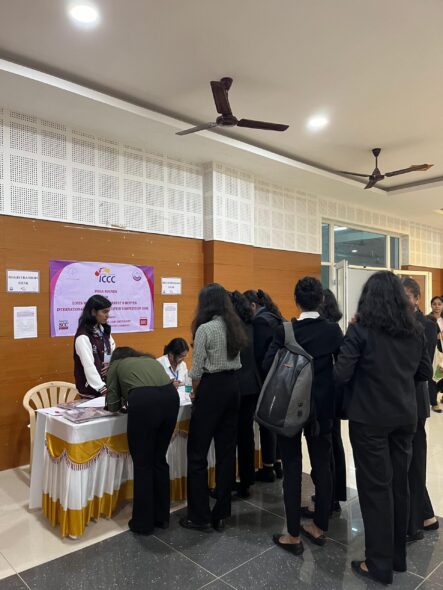
4 PM | SCC Online Training Session | Multi-Purpose Hall
The SCC Online Training Session titled “Utilizing SCC Online and EBC Reader for Acing Client-Consulations” commenced with a warm welcome from EBC-SCC Online Student Ambassador, Mr. Anish Mishra, who provided an introduction to how students participating in the Client Counseling competition can effectively utilize the SCC Online platform. Subsequently, the session delved into the basics of the browse Curated topics and articles section in SCC, emphasizing the importance of browsing articles related to International Law Matters. Moving forward, the Find by Topics section was introduced, with a specific focus on exploring content related to International Humanitarian Law.
Participants were guided through the Advanced Search functionalities of SCC, particularly in the context of International Humanitarian Law. He demonstrated the verbatim search method using double quotes and showcased the ability to filter judgments, articles, statutes, and more through the innovative “Search within Search” feature. An example search within Refugee Law was presented. The session then moved on to the basics of Word Search and Boolean Search illustrating the use of Boolean operators like AND, NEAR, OR, and NOT through an example query: “Refugees AND Occupation.”
At 4:30 PM, Attention was directed to the EBC Reader, where he showcased the diverse collection of books on International Law and Refugees. Features such as the Advanced Search within the EBC Reader, covering books, bare acts, journals, and periodicals, were also demonstrated. New additions to the EBC Reader were shown highlighting the notifications section.
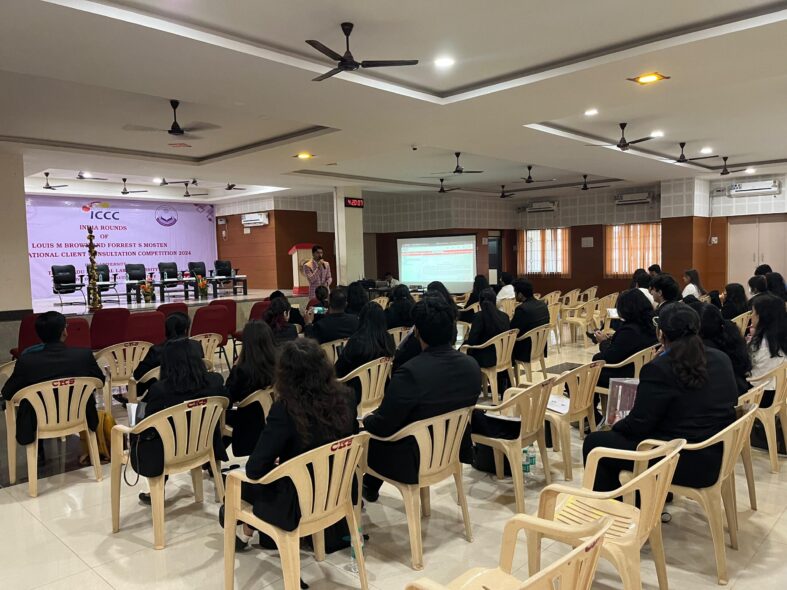
The session concluded at 4:45 PM with closing remarks delivered by Anish Mishra, expressing gratitude to all participants on behalf of EBC. He extended sincere appreciation for their active involvement and contributions throughout the event. Additionally, he informed participants of the opportunity to further engage with the event’s proceedings through the Live Blogging Section of SCC Online Blogs.
5 PM | Inaugration Ceremony | Multi-Purpose Hall
At 5:00 PM, the Inauguration Ceremony commenced, marking the formal initiation of the event. The Vice-Chancellor, Prof. (Dr.) V. Nagraj accompanied by the Registrar, Prof. (Dr.) Balakrishnan extended a warm welcome to the esteemed guests, Justice (Retd.) Kanaan Krishnamoorthy and Mr. Babu Gowda Patil, who is the co-ordinator of the India Rounds of Louis Brown.
At 5:05 PM, the Inauguration Ceremony officially began with the recitation of Tamil Thaai Vaazhthu, evoking a sense of solemnity and cultural reverence.
At 5:09 PM, a symbolic moment ensued as the dignitaries present participated in the Lighting of the Lamp ceremony, symbolizing the illumination of knowledge and wisdom to guide the event’s proceedings.
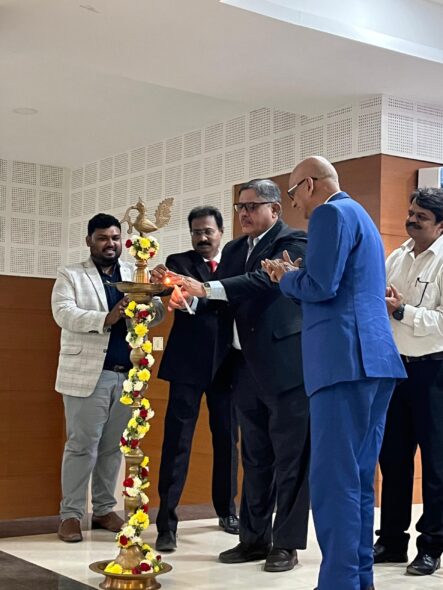
Following this, at 5:11 PM, the Registrar delivered a Welcome Speech, expressing gratitude to the esteemed guests and the Vice-Chancellor on behalf of the college community for their presence and support.
At 5:15 PM, the Vice-Chancellor extended a token of appreciation to the guests by presenting them with a shawl, symbolizing warmth and hospitality.
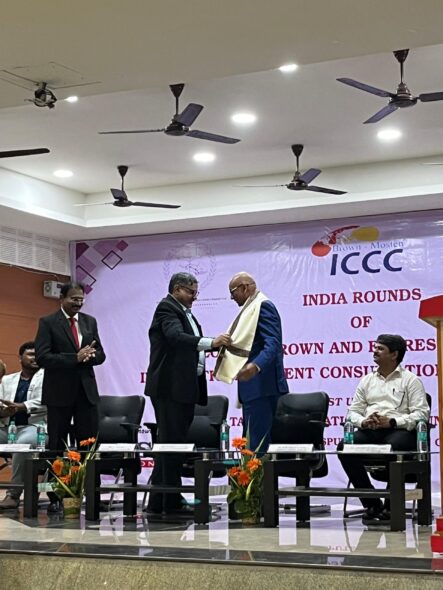
At 5:16 PM, the program progressed with a speech delivered by Mr. Babu Gowda Patil which resonated deeply with every participant, instilling a sense of confidence and joy. Mr. Patil articulated the significance of the India Rounds winner representing the nation in Poland, thereby elevating the competition’s stakes.
During his address, Mr. Patil provided invaluable insights into the essential qualities required for effective client counseling, highlighting the paramount importance of respect in the legal profession. He underscored the indispensable nature of this attribute, emphasizing its role in fostering trust and confidence from clients.
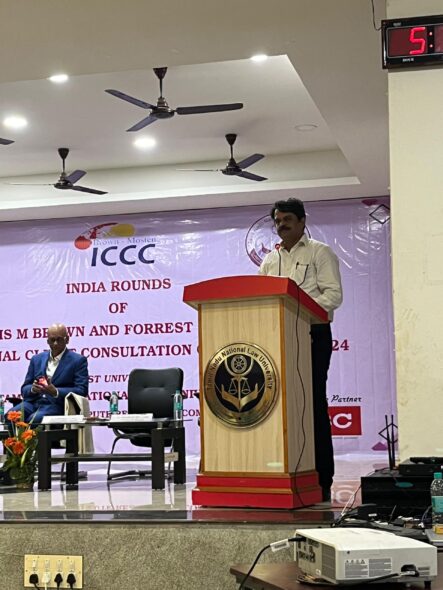
Furthermore, Mr. Patil elucidated the process of posing pertinent questions to clients and offering recommendations, aiding them in making informed decisions smoothly. He emphasized the importance of consent as a fundamental aspect throughout this process, ensuring mutual understanding and agreement between the legal professional and the client.
At 5:25 PM, Justice Kanaan took the podium, expressing his heartfelt appreciation for being selected as the chief guest. Reflecting on his upbringing and professional influences, he shared poignant anecdotes, particularly reminiscing about his father’s profound impact on his career, especially his adept communication skills when dealing with clients.
In his address, Justice Kanaan delved into the historical evolution of Alternative Dispute Resolution (ADR), tracing its roots back to Roscoe Pound’s seminal proposal in 1906. He expounded on how ADR has since become integral to legal systems worldwide, including India, where it has been enshrined in legislation such as the Legal Services Authorities Act.
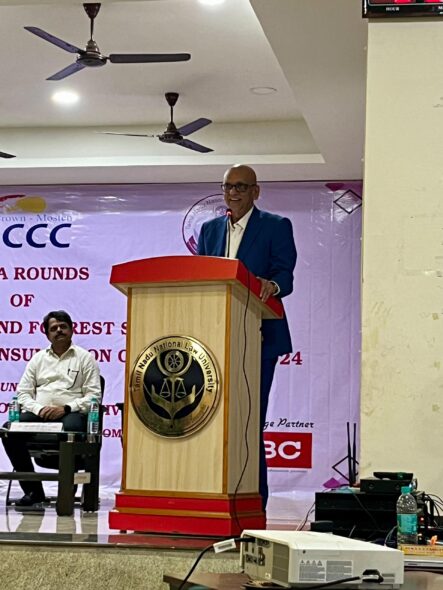
Moreover, Justice Kanaan underscored the pivotal role of effective communication and ethical considerations in ADR, emphasizing its capacity to foster truthfulness and resolve complex humanitarian issues. Drawing from historical and mythological contexts, he urged participants to embrace principles of non-violence and the rule of law, highlighting their enduring relevance in contemporary legal practice.
Ultimately, Justice Kanaan’s address resonated with the audience, not only providing valuable insights into the intricacies of ADR but also instilling a sense of duty toward upholding ethical standards and promoting justice in society.
The counseling session commenced with the client eloquently narrating her narrative in a comfortable manner. Employing a distinctive simultaneous approach, the counsels tactfully posed questions to optimize the utilization of time. They diligently sought to clarify the situation from the client’s perspective, thereby facilitating the formulation of appropriate advice.
Furthermore, the counsels meticulously reiterated the client’s details to validate the accuracy of the information provided. Concluding the session, the client bid a cordial farewell, indicative of her satisfaction with the comprehensive discussion held.
Round-3
The session commenced with the arrival of the client, whereupon the counsels actively endeavored to ensure her comfort. Subsequently, the session progressed with the client providing a detailed description of the situation, while the counsels diligently sought clarification on the specifics from her, including refreshing her memory regarding any pertinent materials or vehicles she may have encountered.
In their thorough examination, the counsels further inquired about the relief sought by the client. Following this, the counsels presented a succinct analysis of the client’s case, providing valuable insights and recommendations.
Court Hall-6
Round-1
The counseling session was presided over by judges Mr. Abhishek Sethiya and Ms. Chandrashekara Bharthi. It commenced with a gracious welcome extended to the client at the entrance, followed by the introduction of the counsels. They reassured the client of the utmost confidentiality in communication and provided an overview of the session’s structure, emphasizing their continuous availability for assistance.
Throughout the session, the client maintained a composed and understanding demeanor, facilitating a productive discourse. As the session drew to a close, the counsels expressed gratitude to the client for her participation and kindly requested her to complete a feedback form, indicative of their genuine interest in ensuring a positive experience for all involved parties.
Round-2
The session commenced with the counsels extending a gracious welcome to the client and inviting her to take a seat. They presented an agreement for her perusal, contingent upon her satisfaction with the discussion and their handling of the case. The counsels diligently recorded the client’s information, maintaining consistent and effective eye contact throughout the counseling session.
As the session drew to a close, the counsels bid the client a gracious farewell, ensuring a respectful conclusion to the proceedings.
Round-3
The round commenced with the counsels extending a courteous welcome to the client, offering her a bottle of water for refreshment. They initiated their formal introduction to the client, elucidating the rationale behind the presence of two counsels in the session. This arrangement was explained to ensure that the client would have access to legal counsel in the event of one’s absence.
Subsequently, the counsels proceeded to outline the structure of their discussion, including parameters such as time limits, session-wise fee structure, and the presentation of an agreement. The client then proceeded to articulate her situation, with particular emphasis on the confidentiality of certain aspects.
RESULTS ARE OUT-
Preliminary Rounds results were announced by the Registrar of Tamil Nadu National Law University, Prof. (Dr. ) S.M. Balakrishnan.
Teams that are heading to the Semi-Finals are-
T-01
T-03
T-10
T-15
T-21
T-24
Fixtures for Semi-Final Rounds were announced by the Convenor of ADRC, Ms. Shrutakeerti Eshwar.
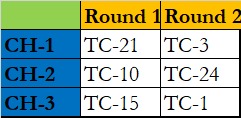
4th February, 2024 (Day-3)-
10:30 AM | Semi-Final Rounds | UG Block
Court Hall-I
Round-1-
The semi-finals in Court Hall I were presided over by Ms. Shabnam Bano and Shiv Prasad. The session commenced with a gracious welcome extended by the Counsels to the client, accompanied by an escort from the door. The counsels made concerted efforts to ensure the client’s comfort and openness, outlining the session’s flow and reiterating the confidentiality agreement to prevent any conflict of interest.
The client confidently narrated his story, providing detailed accounts of the harm inflicted upon him and his community due to the attacks. The counsels took turns to pose questions, diligently clarifying the legal aspects of the situation and the extent of the harm suffered. One counsel noted the potential harm inflicted by the client’s side as a form of retaliation. Subsequently, the client was informed about the legal implications of attacks from either side.
The possibility of reconciliation in the client’s case was explored, with the counsels highlighting the seriousness of his situation and proposing lawful solutions to address his predicament. Suggestions included mediation through community leaders and seeking immediate protection from the magistrate for the tribal people. The Counsels emphasized the need for security in the area to prevent any mishaps and assured the client about the potential deployment of a designated police force (CRPF) until the situation is resolved.
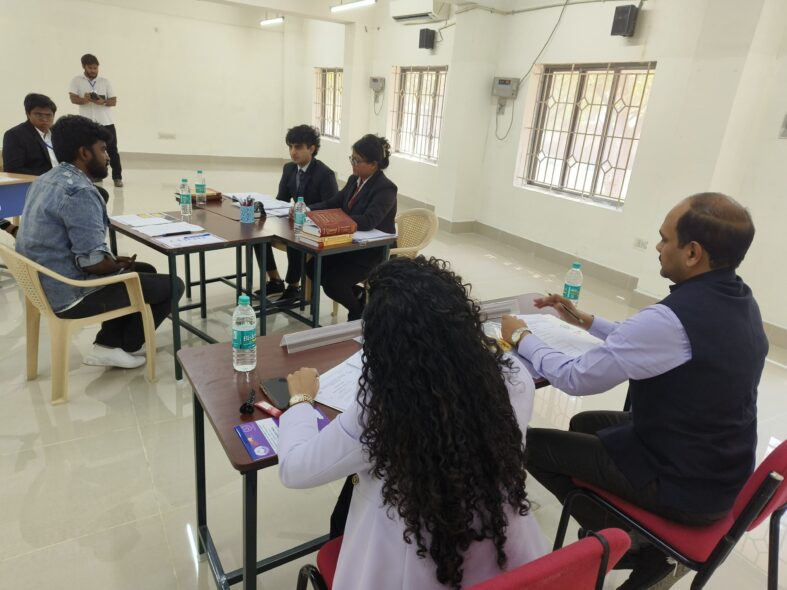
The client expressed discomfort with the suggestion of mediation due to potential bias, but the Counsels reassured him that he could inform the mediators if he perceived any bias. They candidly portrayed the client’s situation, acknowledging his role as the violator while also emphasizing the importance of faith in the rule of law. Toward the conclusion of the discussion, the Counsels reiterated that further sessions would be chargeable and requested the client to fill in a feedback form to communicate any grievances and share his experience.
Post-counselling, the counsels acknowledged the grave situation of their client and discussed the helpless situation of the community, given the lack of assistance from authorities. They considered potential solutions, such as ceasing attacks and killings of people from other communities, stressing that such actions were not only unlawful but also unethical. One counsel emphasized that mediation could be an efficient way to settle their issues, while the other suggested considering a judicial approach, especially since the client seemed distrustful of state authorities.
During the judges’ question session, the lady judge questioned the counsels’ contradictory stance throughout the session and perceived that one counsel was more articulate than the other. She appreciated their choice of mediation as a solution but suggested they should have explored more avenues of legal representation. The second judge concurred with the first and appreciated the counsels’ efforts, which were graciously accepted by the counsels before their departure.
Round-2
The counsels extended a joint welcome to the client and elucidated the rationale behind their dual presence, assuring constant availability and comprehensive familiarity with the case.
They provided the client with an overview of the firm’s areas of expertise and expounded upon the concept of conflict of interest in accessible language. Additionally, one counsel apprised the client of the firm’s fee structure and highlighted their pro bono services.
Before delving into the discussion, the counsels clarified the nature of the advice they would offer, based on their assessment of the case. As the client recounted her situation, the counsels demonstrated empathy and posed pertinent questions to attain clarity, including inquiries regarding the jurisdiction, community involved, and any relevant documentation.
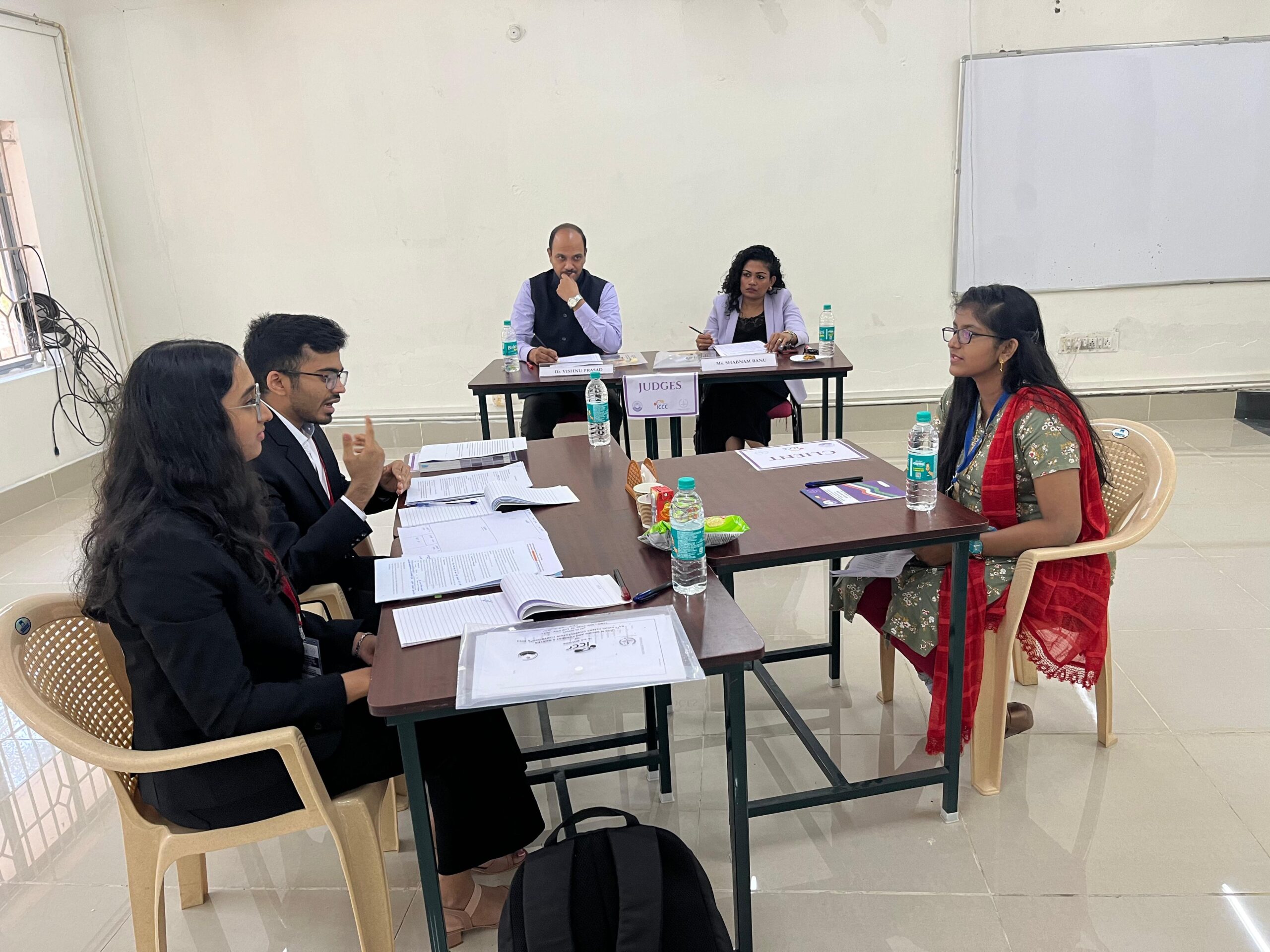
Advocating for conflict avoidance and exploring avenues for reconciliation, the counsels conducted a comprehensive SWOT analysis of the case, delineating its strengths and weaknesses, particularly concerning engaging with governmental authorities.
Proposing two potential solutions – mediation between the involved parties and initiating criminal proceedings against those perpetrating atrocities – the counsels advised the client to acquire land information from land record authorities to ascertain the extent of encroachment.
Following the dispensation of advice, the counsels reassured the client of their steadfast support and expressed appreciation for her openness, which facilitated a deeper understanding of the circumstances.
In their internal discussion, the counsels deliberated on the case’s strengths based on the SWOT analysis and identified the client’s reluctance to engage with authorities as a potential challenge. They also delved into pertinent international legal frameworks such as UDHR articles and explored potential charges, including trespass and destruction of public property.
When questioned by the judge regarding the applicability of International Humanitarian Law to the client’s situation, the counsels considered the presence of armed conflict and its relevance in the given context. After addressing the judge’s inquiries, the counsels gracefully exited the office.
Court Hall-II
Round-1-
The counsels (TC-10) extended a cordial welcome to the client, offering a comprehensive overview of the confidential clauses and conflict of interest terms. The discussion commenced with the client sharing pertinent details about the issues at hand, prompting the counsels to initiate clarifications, thereby uncovering five significant incidents during her tenure.
Highlighting the alarming frequency of recent activities, notably including member fatalities and incidents of sexual assault against women, the counsels recommended a strategic approach involving legal bodies such as the Supreme Court, officials, District Magistrate, NHRC, and NGOs like IOVA, while also suggesting seeking police protection.
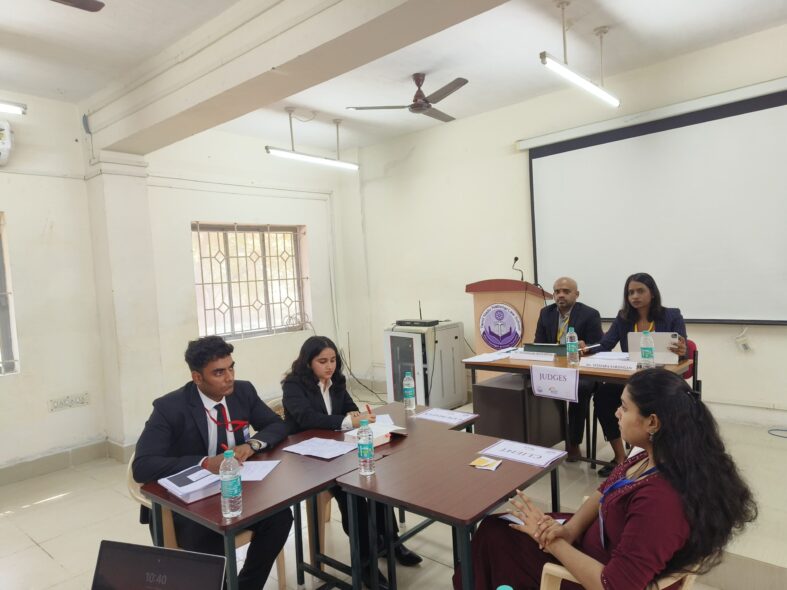
Following the discussion, the client-counsel meeting concluded with the counsels assuring the client of their unwavering commitment to assisting her and her community. Subsequently, the counsels deliberated on the issues at hand and outlined the next steps for the case. Recognizing the community’s protection under a 1947 declaration and categorizing the situation as genocide, they emphasized the importance of maintaining confidentiality and reaching out for support.
To efficiently manage the workload, responsibilities were divided between the counsels, with IOVA providing additional assistance. The meeting concluded with plans for a second session with the client at a later date to further address and strategize on the ongoing case.
Court Hall-III
Round-1-
The session commenced with the Counsels actively engaging with the client, providing reassurance and support throughout the interaction. They guided the conversation collaboratively, establishing avenues for immediate assistance and expressing readiness to further engage in subsequent sessions as necessary. The client, while recounting the harrowing incidents endured by their community, expressed anxiety and highlighted various atrocities.
Maintaining a supportive and empathetic stance, the counseling team listened attentively as the client shared the details. Subsequently, in a demonstration of their commitment to thoroughly understanding the situation, the counselors posed probing questions related to evidence and sought a deeper comprehension of the circumstances. Moreover, they seized the opportunity to educate the client about various available remedies, emphasizing the potential effectiveness of negotiation as a non-violent method to address and resolve the complex issues at hand.
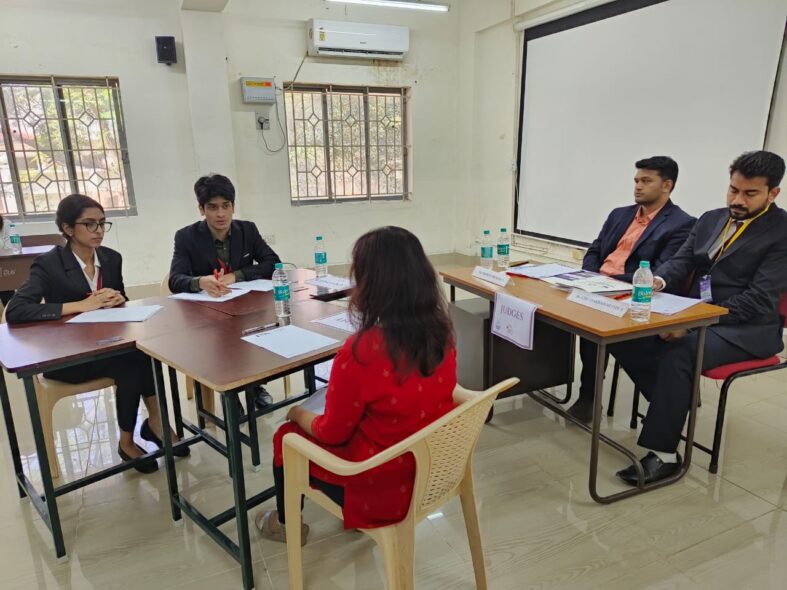
This pivotal stage showcased not only the compassionate approach of the counseling team but also their strategic guidance toward seeking justice and resolution for the client and their community. The session concluded with the counsels providing a solid suggestion and summarizing the client’s situation. To wrap up, the client was guided to the exit with a professional and caring approach.
RESULTS OF THE FINALS ARE OUT-
Teams that are going to the finals are-
TC-01
TC-03
2:30; FINALS-
The judges convened to preside over the client counseling session, which commenced with the arrival of a visibly distressed and agitated client. Sensing the client’s emotional state, the counsels endeavored to provide comfort and assurance before proceeding with the session. Despite initial resistance and frustration expressed by the client, the counsels maintained their composure and continued to reassure him of the confidential and supportive environment they aimed to create.
Efforts to establish a sense of trust and understanding were met with skepticism from the client, who expressed concerns about the confidentiality agreement presented to him. Despite his reluctance to engage in formalities, the counsels persisted in emphasizing the importance of providing a safe space for the client to express his concerns and seek assistance.
The client’s primary concern centered around the protection of himself and his children, although he appeared unclear about the specific relief he sought. Nevertheless, the counsels actively explored avenues for immediate protective measures, including the suggestion of engaging with organizations such as the Red Cross for international safety arrangements.
In response to the client’s insistence on immediate protection over procedural formalities, the counsels pivoted towards arranging detective services to gather further information about the situation and potential perpetrators. However, the client remained steadfast in prioritizing immediate safety measures.
During an internal discussion among the counsels, considerations were made regarding the identification of applicable laws protecting journalists, reflecting their commitment to finding appropriate legal avenues to address the client’s concerns.
Amid the session, the judges posed questions regarding the absence of the client’s name in the confidentiality agreement and inquired about the sufficiency of alternate solutions proposed by the counsels. Additionally, questions were raised regarding the appropriateness of a lawyer lending money to a client and the nature of information the client seemed hesitant to disclose.
Overall, despite challenges and skepticism, the counseling session remained focused on addressing the client’s immediate safety concerns while also exploring legal strategies to provide long-term support and protection.
5:45; VALEDICTORY-
The team that is going to represent India for the International Louis M Brown and Forrest S Mosten Client Consultation Competition, 2024 in Poland is-
NMIMS, Mumbai



